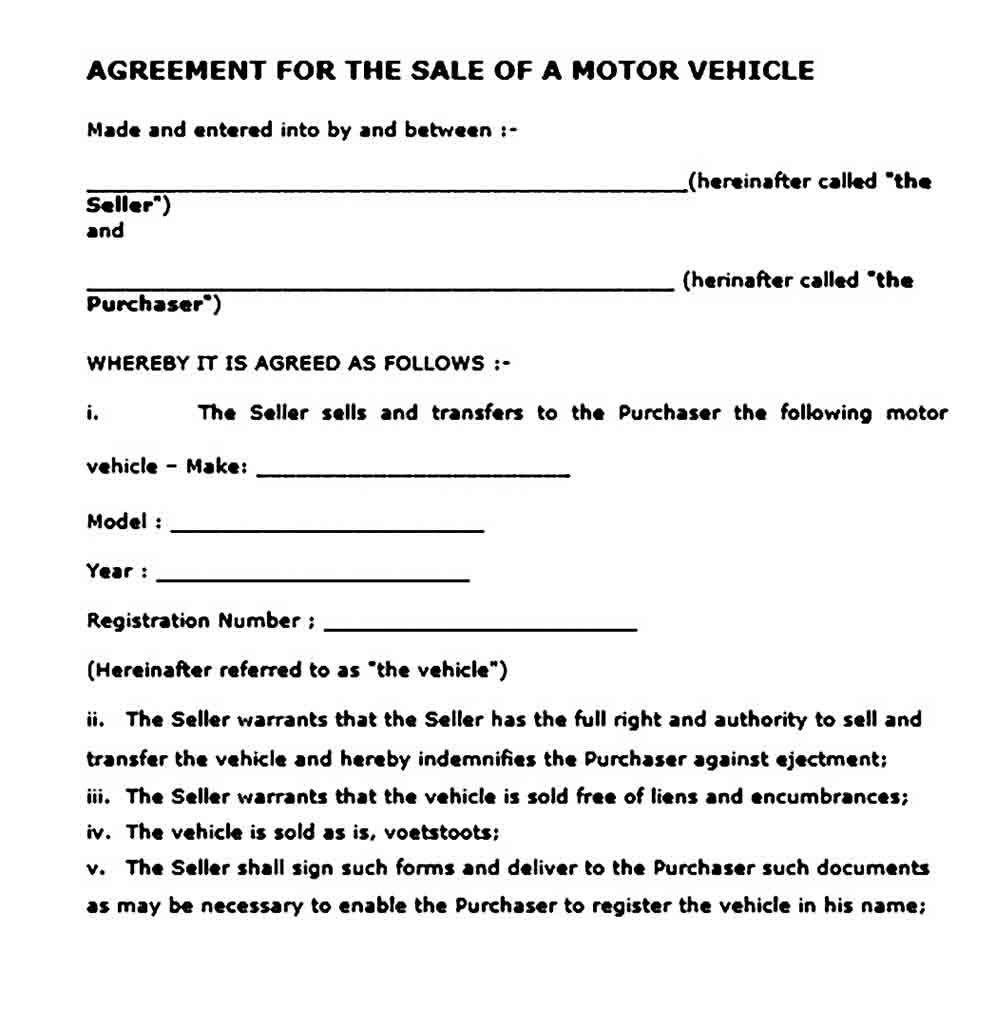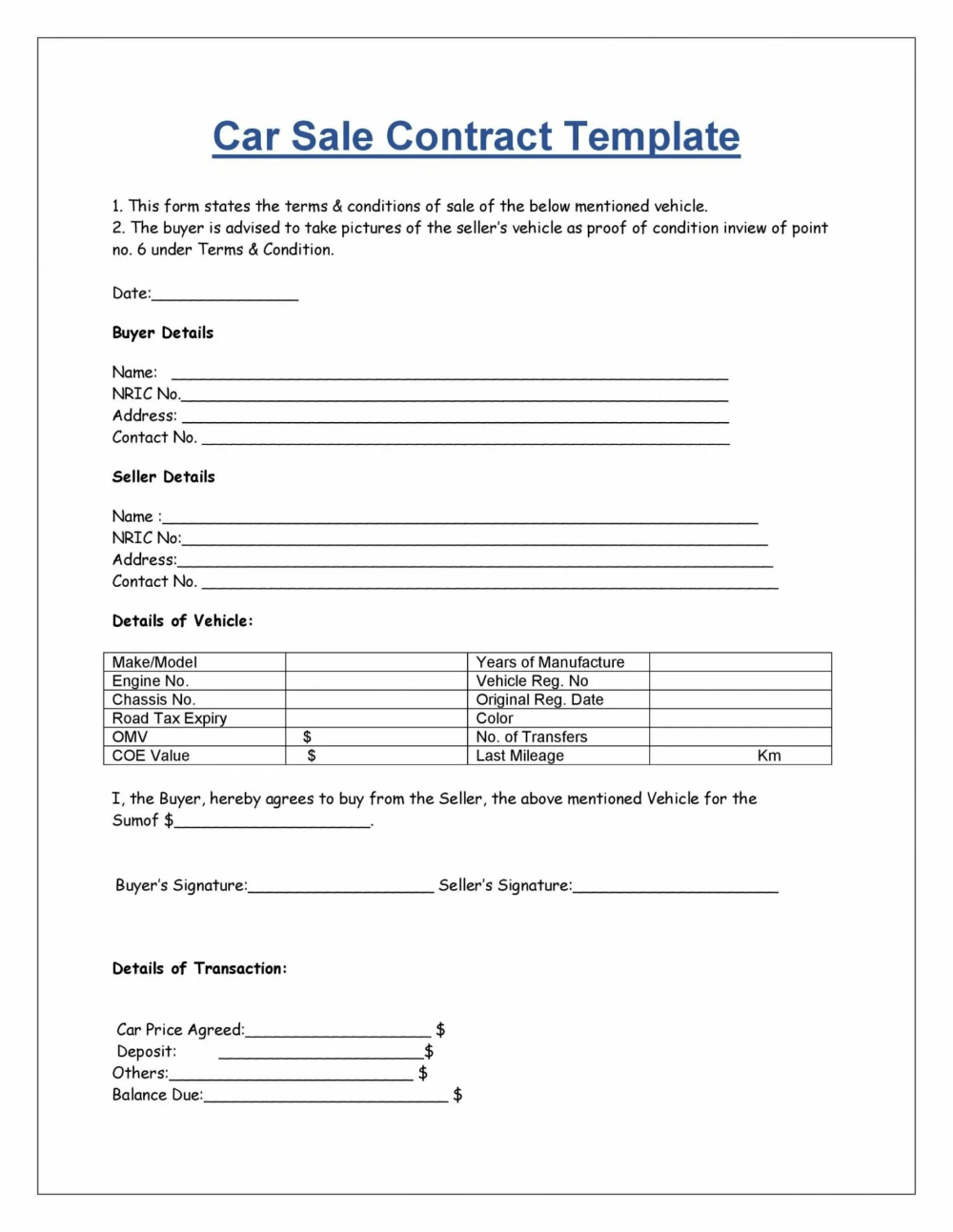When it comes to purchasing a new car, the car buying agreement is a crucial document that outlines the terms and conditions of the sale. This legal contract serves as a binding agreement between the buyer and the seller, detailing important information such as the vehicle’s purchase price, payment terms, warranties, and any additional agreements made between the parties involved. Understanding the car buying agreement is essential to ensure a smooth and hassle-free transaction, protecting both the buyer and the seller throughout the process.
What is a Car Buying Agreement?
A car buying agreement, also known as a purchase agreement or sales contract, is a written document that formalizes the terms of the sale of a vehicle between the buyer and the seller. This agreement typically includes details such as the vehicle’s make, model, year, VIN number, purchase price, payment terms, and any additional fees or charges. It also outlines the warranties provided by the seller, as well as any conditions or contingencies that must be met before the sale is finalized.
The Purpose of a Car Buying Agreement

Image Source: pinimg.com
The main purpose of a car buying agreement is to protect both the buyer and the seller by clearly outlining the terms and conditions of the sale. This legal document helps prevent misunderstandings or disputes that may arise during or after the transaction, providing a clear record of the agreed-upon terms. By signing the car buying agreement, both parties agree to abide by the terms outlined in the contract, ensuring a fair and transparent sale process.
Why is a Car Buying Agreement Important?
A car buying agreement is important for several reasons. Firstly, it provides legal protection for both the buyer and the seller by clearly defining the terms of the sale. This helps prevent any misunderstandings or disputes that may arise, ensuring a smooth and successful transaction. Additionally, the car buying agreement serves as a record of the sale, providing documentation of the agreed-upon terms in case any issues need to be resolved in the future. Overall, having a car buying agreement in place is essential for a secure and transparent car buying process.
How to Create a Car Buying Agreement

Image Source: cocosign.com
Creating a car buying agreement involves several steps to ensure that all necessary information is included and that the terms are clearly defined. The first step is to gather all relevant details about the vehicle, including the make, model, year, VIN number, and any additional features or accessories. Next, the purchase price, payment terms, and any warranties or guarantees should be outlined in the agreement. It is also important to include any conditions or contingencies that must be met before the sale is finalized. Once all details have been confirmed, the agreement should be reviewed and signed by both the buyer and the seller to make it legally binding.
1. Include all relevant details about the vehicle
When creating a car buying agreement, it is essential to include all relevant details about the vehicle being sold. This includes the make, model, year, VIN number, mileage, and any other pertinent information that identifies the car. Providing accurate information about the vehicle helps prevent any misunderstandings or disputes later on.
2. Outline the purchase price and payment terms

Image Source: pinimg.com
Clearly outlining the purchase price and payment terms in the car buying agreement is crucial to avoid any confusion or disagreements. The purchase price should be clearly stated, along with the method of payment, any down payment required, and the payment schedule. Including this information helps ensure that both parties are on the same page regarding the financial terms of the sale.
3. Include any warranties or guarantees
If the seller is providing any warranties or guarantees for the vehicle, these should be clearly outlined in the car buying agreement. This includes any manufacturer warranties that are still valid, as well as any additional warranties offered by the seller. Including this information helps protect the buyer in case any issues arise with the vehicle after the sale.
4. Specify any conditions or contingencies

Image Source: pdffiller.com
It is important to specify any conditions or contingencies that must be met before the sale is finalized in the car buying agreement. This could include passing a vehicle inspection, obtaining financing approval, or any other requirements that need to be fulfilled before the transaction can be completed. Including these conditions helps ensure that both parties understand what needs to be done to finalize the sale.
5. Review and sign the agreement
Once all details have been included in the car buying agreement, it should be reviewed by both the buyer and the seller to ensure that everything is accurate and complete. Any questions or concerns should be addressed before signing the agreement to avoid any misunderstandings. Once both parties are satisfied with the terms, the agreement should be signed and dated to make it legally binding.
6. Keep a copy for your records

Image Source: templatelab.com
After the car buying agreement has been signed, it is important to keep a copy for your records. This document serves as a legal record of the sale and should be retained for future reference. Keeping a copy of the agreement can help protect both the buyer and the seller in case any disputes or issues arise down the line.
7. Seek legal advice if needed
If you are unsure about any aspect of the car buying agreement or if you have any questions about the terms included in the document, it is advisable to seek legal advice. A legal professional can review the agreement and provide guidance on any issues that need to be addressed before finalizing the sale. Having a legal expert review the agreement can provide peace of mind and ensure that your interests are protected.
8. Be clear and transparent

Image Source: templatelab.com
Throughout the process of creating a car buying agreement, it is essential to be clear and transparent about all aspects of the sale. This includes providing accurate information about the vehicle, clearly stating the purchase price and payment terms, and outlining any warranties or guarantees. Being upfront and honest in your dealings helps build trust between the buyer and the seller, leading to a successful and satisfactory transaction.
Tips for a Successful Car Buying Agreement
Communicate openly: Effective communication is key to creating a successful car buying agreement. Make sure all parties are on the same page and understand the terms of the sale.
Get everything in writing: Having a written agreement helps prevent misunderstandings and provides a clear record of the sale.
Review the agreement carefully: Take the time to review the car buying agreement thoroughly before signing to ensure that all terms are accurate and complete.
Seek legal advice if needed: If you have any doubts or concerns about the agreement, don’t hesitate to consult with a legal professional for guidance.
Keep a copy for your records: Retain a copy of the car buying agreement for your records to refer back to if needed in the future.
Be honest and transparent: Building trust through honesty and transparency is essential for a successful car buying agreement.

Image Source: templatelab.com
In conclusion, a car buying agreement is a vital document that outlines the terms and conditions of a vehicle sale, protecting both the buyer and the seller throughout the transaction. By understanding the purpose of the agreement and following the steps to create a comprehensive contract, you can ensure a smooth and successful car buying process. Remember to communicate openly, get everything in writing, review the agreement carefully, seek legal advice if needed, keep a copy for your records, and be honest and transparent in your dealings. By following these tips, you can create a successful car buying agreement that provides peace of mind for all parties involved.

Image Source: templatelab.com

Image Source: templatelab.com

Image Source: templatelab.com